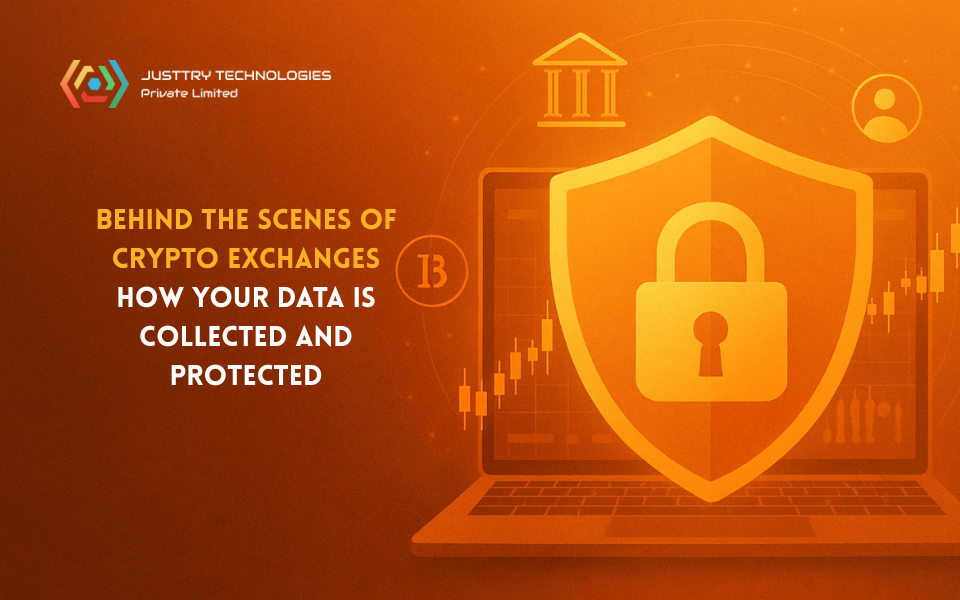RESILIENCE-
6 Underestimated Drivers of Well-Being.
Research shows these psychospiritual forces may be critical for health.
Reviewed by Kaja Perina
KEY POINTS-
Meaning, purpose, value, connection, resilience, and transcendence are key drivers of well-being.
Research shows these psychospiritual forces may be critically important for decreasing risk of illness.
When I was in graduate school studying world religion, philosophy, and psychology, I became intrigued by what, if anything, undergirds the world’s wisdom traditions. I had no interest in diluting them or melting them into one. I was more curious about what was beneath belief. After much research, I arrived at what I termed the Six Fundamental Human Desires. Taken together, they are what all the major traditions, each in their own way, using their own language, care about and try to make real for people’s lives.
It turns out these desires can positively affect the body and mind as much as the spirit and soul.
1. Meaning
Meaning helps us to make sense of life and find significance in life. It satisfies our desire to have a life filled with understanding, awareness, peace, and satisfaction. Meaning helps us to see how we fit into the world, and that greatly shapes the stories we live by. Meaning gives us the sense that we, others, and certain things in life matter, which helps us to craft a rich and rewarding existence. Meaning gives us confidence that within each moment or each situation, there is something important and worthwhile that can orient us, carry us forward, and help us to be well.
Research (Bigony & Keitel, 2020) shows that meaning-making can lessen the negative effects of people adjusting to and living with chronic illness. Studies (Fredricksona et al., 2013) also reveal that people who believe their existence has meaning have lower levels stress hormones and more favorable gene expression related to inflammation. Further research (Park, 2012) shows that meaning-making can positively influence the transition of cancer patients into longer-term survivorship and help people harness the will to live, which has been shown to contribute to longevity.
2. Purpose
Purpose grounds and motivates us, unifies our life, and directs us toward some ultimate concern or “North Star” around which we shape our lives. Purpose satisfies our desire to have a reason to get up in the morning and go to bed at night feeling as though we’ve done something important or worthwhile. Purpose gives us confidence that we have “miles to go before we sleep.”
In a meta-analysis of 10 studies involving more than 136,000 people, researchers found that having purpose in life can lower your mortality risk by roughly 17% (Cohen et al., 2016) — about as much as following the much-celebrated Mediterranean diet. Another study (Boyle, 2012) found that if a 90-year-old with a clear purpose in life develops Alzheimer’s disease, that person will probably continue to function relatively well despite pathological changes in the brain.
Research (Alimujiang et al., 2019) also shows that people who have high levels of purpose spend fewer nights in hospitals and have lower odds of developing diabetes and over two times lower risk of dying from heart conditions than others. People with purpose are similarly more likely to keep active, get their cholesterol levels checked, even undergo colonoscopies; they can also buffer stress better (Kim, 2014).
3. Values
Values help us determine what we give priority and precedence to, and what we pursue in life. Values satisfy our desire to have something to work for, find deserving, invest in, and live by. Values give us confidence that there are certain things we can always turn to and rely upon to keep our integrity intact and keep us headed in the right direction.
Emotional or affective states, in particular the shame and guilt that often come from not living our values, can have a significant impact on health, illness, and health-related behaviors.
Shame has been linked to high levels of stress-related hormones that can meaningfully impact the immune system. Shame has also been linked to high elevation of cytokine activity. Cytokines are signs in the body of inflammation, indicating that a disease process may be in progress. Toxic shame — different from ordinary shame, which passes in a day or a few hours — has been shown to result in substance abuse, eating disorders, and self-harm. One large-scale meta-analysis (Kämmerer, 2019) showed shame’s link with depression is especially strong. Shame has also been linked to irritable bowel syndrome (IBS; Muscatello et al., 2016).
Similarly, guilt is related to anxiety and depression, but also to obsessive-compulsive disorder (OCD), insomnia, loss of appetite, stomach and digestion issues, and an overall dreary or “weighted down” feeling (Hotchkiss, 2013).
4. Connection
Connection helps us relate to and form relationships with others and the world around us. Connection satisfies our desire to bond and belong — to have a type of familial warmth and security. Connection gives us confidence in the very real power of trust, intimacy, community, empathy, and love.
Connection is a critically important contributor to good health and longevity. According to the Harvard Women’s Health Watch, numerous studies (2010) have shown that people who have satisfying relationships are happier, have fewer health problems, and live longer. One study (Harvard Woman’s Health Watch, 2010) of more than 309,000 people, found that not having strong relationships increased the risk of premature death by 50% — that’s comparable to smoking as many as 15 cigarettes a day, and greater than obesity and physical inactivity. Another study (Berkman et al., 1979) showed that people who were disconnected from others were roughly three times more likely to die than people with strong social ties.
Researchers (Ruberman, 1984) at the Health Insurance Plan of Greater New York found that of 2,320 men who had survived a heart attack, those with strong bonds had only a quarter the risk of death within three years as those who lacked social connectedness. Researchers (Brummet, 2021) at Duke University Medical Center also found that connection can reduce deaths in people with serious medical conditions. Among adults with coronary artery disease, the mortality rate was nearly two and a half times higher among those who were socially isolated. Other studies show that connecting with others also helps relieve harmful levels of stress and inflammation, which can have an adverse effect on gut function, insulin regulation, and the immune system.
In contrast, loneliness can lead to disrupted sleep patterns, elevated blood pressure, delayed recovery from injury, surgery, illness, cognitive and functional decline, including dementia, and a wide range of diseases, including cardiovascular disease and cancer (American Psychological Association, 2017).
Overall, there is consistent and compelling evidence (Umberton & Montez, 2010) that connection contributes to lower rates of anxiety and depression, higher self-esteem, greater empathy, and more trusting and cooperative relationships.
5. Resilience
Resilience shows us how to flourish, not despite but because of adversity, in a way that improves, rather than hurts our lives, and fortifies, rather than weakens our spirit. Resilience satisfies our desire to live fully, love deeply, and thrive—every day, come what may. Resilience gives us confidence that life is always worth living.
More and more research shows that resilience can buffer various mental health conditions, such as depression and anxiety. Resilience can also help offset factors that increase the risk of mental health conditions, such as being bullied or previous trauma.
Resilience has been found to lower blood pressure; offset insomnia, heartburn, indigestion, and heart disease; and boost a weakened immune system (Harvard Health Publishing, 2017).
The link to resilience and the immune system is particularly important. In one study (MentalHeath Net, 2023), depressed women suffering from breast cancer were found to have fewer immune system cells and weaker overall immune functioning when compared to non-depressed breast cancer sufferers. Because the job of the immune system is, in part, to hunt down and kill cancer cells, depressed breast cancer sufferers’ weaker immune function means that their bodies are less likely to be able to resist their cancers. Similarly, another study found that depressed bone marrow transplant patients were significantly more likely to die during the first post-treatment year than non-depressed transplant recipients. In a third study (McGowen, 2018) in adults with HIV, high resilience was related to a lower prevalence of depression, anxiety, and problems with ADLs.
6. Transcendence
Transcendence wakes us up to the fullness of life — to experience something greater than our daily to-do lists, something truly sublime or, for some, even the divine. Transcendence satisfies our desire for wonder and awe. Transcendence gives us confidence that there are things in life that will always inspire, encourage, humble, and excite us.
Many people associate transcendence with religion and spirituality. Researchers (Mueller, 2001) at the Mayo Clinic concluded that religious or spiritual involvement is associated with better health outcomes, including greater longevity, coping skills, and health-related quality of life (even during terminal illness), and less anxiety, depression, and suicide. Other studies have found that addressing a patient’s spiritual needs enhances recovery from illness.
Frequent attendance at church, temple, mosque, or other spiritual gatherings may also improve health. For instance, in one study, religious or spiritual attendees were more likely to stop smoking, increase exercise, increase social contacts, and stay married. Multiple studies (Koenig et al., 2012; Strawbridge et al., 1997) also show that religiously inclined people live longer. Research at Duke University has similarly found that those who are religious have a strong internal sense of control, which can help people cope with depression and anxiety and deal better with adversity.
Of course, you don’t have to be religiously inclined to benefit from the experience of transcendence. Research (Allen, 2018) at the University of California, Berkeley on the relationship of positive emotions and levels of proinflammatory cytokines found that awe, more than any other emotion, significantly reduced inflammation. As mentioned previously, proinflammatory cytokines are cell-signaling proteins that help to fight infection or injury. High levels of these cytokines have been linked to several chronic diseases, such as cancer, cardiovascular disease, diabetes, and depression. In this study, awe was the strongest predictor of lower IL-6 levels, a proinflammatory cytokine.
Experiencing transcendence while in nature or viewing awe-inspiring images decreases sympathetic activity and increases parasympathetic activity, effectively switching our nervous system from a heightened state of arousal to a place of calm (Shiota, 2011). A study (Chirico, et al., 2018) with Virtual Reality stimuli found that looking at high, snowy mountains increased people’s mood and sense of awe, while viewing the Earth from space or a forest did not; the mountain scene also induced the highest level of awe, although the other stimuli also increased awe significantly.
A study (Anderson et al, 2018) with military veterans and youth from underserved communities found that the transcendence and awe they experienced while whitewater rafting, significantly reduced stress and increased overall well-being. The effects continued to improve one week later. Researchers also found that on days participants spent time in nature, generally, they reported feeling more awe — as well as greater life satisfaction and well-being, suggesting that awe may be a crucial ingredient in nature’s restorative abilities.
The connection of the body, mind, and spirit and its relation to well-being has been a topic of discussion throughout millennia. Today, a holistic biopsychosocial-spiritual model of health is increasingly finding its way into the mainstream, as individuals, families, and health and mental health providers recognize that just as we have basic physical needs, we also have fundamental human desires like meaning, purpose, value, connection, resilience, and transcendence that may be as important for decreasing the risk of illness and death and increasing overall health.
RESILIENCE-
6 Underestimated Drivers of Well-Being.
Research shows these psychospiritual forces may be critical for health.
Reviewed by Kaja Perina
KEY POINTS-
Meaning, purpose, value, connection, resilience, and transcendence are key drivers of well-being.
Research shows these psychospiritual forces may be critically important for decreasing risk of illness.
When I was in graduate school studying world religion, philosophy, and psychology, I became intrigued by what, if anything, undergirds the world’s wisdom traditions. I had no interest in diluting them or melting them into one. I was more curious about what was beneath belief. After much research, I arrived at what I termed the Six Fundamental Human Desires. Taken together, they are what all the major traditions, each in their own way, using their own language, care about and try to make real for people’s lives.
It turns out these desires can positively affect the body and mind as much as the spirit and soul.
1. Meaning
Meaning helps us to make sense of life and find significance in life. It satisfies our desire to have a life filled with understanding, awareness, peace, and satisfaction. Meaning helps us to see how we fit into the world, and that greatly shapes the stories we live by. Meaning gives us the sense that we, others, and certain things in life matter, which helps us to craft a rich and rewarding existence. Meaning gives us confidence that within each moment or each situation, there is something important and worthwhile that can orient us, carry us forward, and help us to be well.
Research (Bigony & Keitel, 2020) shows that meaning-making can lessen the negative effects of people adjusting to and living with chronic illness. Studies (Fredricksona et al., 2013) also reveal that people who believe their existence has meaning have lower levels stress hormones and more favorable gene expression related to inflammation. Further research (Park, 2012) shows that meaning-making can positively influence the transition of cancer patients into longer-term survivorship and help people harness the will to live, which has been shown to contribute to longevity.
2. Purpose
Purpose grounds and motivates us, unifies our life, and directs us toward some ultimate concern or “North Star” around which we shape our lives. Purpose satisfies our desire to have a reason to get up in the morning and go to bed at night feeling as though we’ve done something important or worthwhile. Purpose gives us confidence that we have “miles to go before we sleep.”
In a meta-analysis of 10 studies involving more than 136,000 people, researchers found that having purpose in life can lower your mortality risk by roughly 17% (Cohen et al., 2016) — about as much as following the much-celebrated Mediterranean diet. Another study (Boyle, 2012) found that if a 90-year-old with a clear purpose in life develops Alzheimer’s disease, that person will probably continue to function relatively well despite pathological changes in the brain.
Research (Alimujiang et al., 2019) also shows that people who have high levels of purpose spend fewer nights in hospitals and have lower odds of developing diabetes and over two times lower risk of dying from heart conditions than others. People with purpose are similarly more likely to keep active, get their cholesterol levels checked, even undergo colonoscopies; they can also buffer stress better (Kim, 2014).
3. Values
Values help us determine what we give priority and precedence to, and what we pursue in life. Values satisfy our desire to have something to work for, find deserving, invest in, and live by. Values give us confidence that there are certain things we can always turn to and rely upon to keep our integrity intact and keep us headed in the right direction.
Emotional or affective states, in particular the shame and guilt that often come from not living our values, can have a significant impact on health, illness, and health-related behaviors.
Shame has been linked to high levels of stress-related hormones that can meaningfully impact the immune system. Shame has also been linked to high elevation of cytokine activity. Cytokines are signs in the body of inflammation, indicating that a disease process may be in progress. Toxic shame — different from ordinary shame, which passes in a day or a few hours — has been shown to result in substance abuse, eating disorders, and self-harm. One large-scale meta-analysis (Kämmerer, 2019) showed shame’s link with depression is especially strong. Shame has also been linked to irritable bowel syndrome (IBS; Muscatello et al., 2016).
Similarly, guilt is related to anxiety and depression, but also to obsessive-compulsive disorder (OCD), insomnia, loss of appetite, stomach and digestion issues, and an overall dreary or “weighted down” feeling (Hotchkiss, 2013).
4. Connection
Connection helps us relate to and form relationships with others and the world around us. Connection satisfies our desire to bond and belong — to have a type of familial warmth and security. Connection gives us confidence in the very real power of trust, intimacy, community, empathy, and love.
Connection is a critically important contributor to good health and longevity. According to the Harvard Women’s Health Watch, numerous studies (2010) have shown that people who have satisfying relationships are happier, have fewer health problems, and live longer. One study (Harvard Woman’s Health Watch, 2010) of more than 309,000 people, found that not having strong relationships increased the risk of premature death by 50% — that’s comparable to smoking as many as 15 cigarettes a day, and greater than obesity and physical inactivity. Another study (Berkman et al., 1979) showed that people who were disconnected from others were roughly three times more likely to die than people with strong social ties.
Researchers (Ruberman, 1984) at the Health Insurance Plan of Greater New York found that of 2,320 men who had survived a heart attack, those with strong bonds had only a quarter the risk of death within three years as those who lacked social connectedness. Researchers (Brummet, 2021) at Duke University Medical Center also found that connection can reduce deaths in people with serious medical conditions. Among adults with coronary artery disease, the mortality rate was nearly two and a half times higher among those who were socially isolated. Other studies show that connecting with others also helps relieve harmful levels of stress and inflammation, which can have an adverse effect on gut function, insulin regulation, and the immune system.
In contrast, loneliness can lead to disrupted sleep patterns, elevated blood pressure, delayed recovery from injury, surgery, illness, cognitive and functional decline, including dementia, and a wide range of diseases, including cardiovascular disease and cancer (American Psychological Association, 2017).
Overall, there is consistent and compelling evidence (Umberton & Montez, 2010) that connection contributes to lower rates of anxiety and depression, higher self-esteem, greater empathy, and more trusting and cooperative relationships.
5. Resilience
Resilience shows us how to flourish, not despite but because of adversity, in a way that improves, rather than hurts our lives, and fortifies, rather than weakens our spirit. Resilience satisfies our desire to live fully, love deeply, and thrive—every day, come what may. Resilience gives us confidence that life is always worth living.
More and more research shows that resilience can buffer various mental health conditions, such as depression and anxiety. Resilience can also help offset factors that increase the risk of mental health conditions, such as being bullied or previous trauma.
Resilience has been found to lower blood pressure; offset insomnia, heartburn, indigestion, and heart disease; and boost a weakened immune system (Harvard Health Publishing, 2017).
The link to resilience and the immune system is particularly important. In one study (MentalHeath Net, 2023), depressed women suffering from breast cancer were found to have fewer immune system cells and weaker overall immune functioning when compared to non-depressed breast cancer sufferers. Because the job of the immune system is, in part, to hunt down and kill cancer cells, depressed breast cancer sufferers’ weaker immune function means that their bodies are less likely to be able to resist their cancers. Similarly, another study found that depressed bone marrow transplant patients were significantly more likely to die during the first post-treatment year than non-depressed transplant recipients. In a third study (McGowen, 2018) in adults with HIV, high resilience was related to a lower prevalence of depression, anxiety, and problems with ADLs.
6. Transcendence
Transcendence wakes us up to the fullness of life — to experience something greater than our daily to-do lists, something truly sublime or, for some, even the divine. Transcendence satisfies our desire for wonder and awe. Transcendence gives us confidence that there are things in life that will always inspire, encourage, humble, and excite us.
Many people associate transcendence with religion and spirituality. Researchers (Mueller, 2001) at the Mayo Clinic concluded that religious or spiritual involvement is associated with better health outcomes, including greater longevity, coping skills, and health-related quality of life (even during terminal illness), and less anxiety, depression, and suicide. Other studies have found that addressing a patient’s spiritual needs enhances recovery from illness.
Frequent attendance at church, temple, mosque, or other spiritual gatherings may also improve health. For instance, in one study, religious or spiritual attendees were more likely to stop smoking, increase exercise, increase social contacts, and stay married. Multiple studies (Koenig et al., 2012; Strawbridge et al., 1997) also show that religiously inclined people live longer. Research at Duke University has similarly found that those who are religious have a strong internal sense of control, which can help people cope with depression and anxiety and deal better with adversity.
Of course, you don’t have to be religiously inclined to benefit from the experience of transcendence. Research (Allen, 2018) at the University of California, Berkeley on the relationship of positive emotions and levels of proinflammatory cytokines found that awe, more than any other emotion, significantly reduced inflammation. As mentioned previously, proinflammatory cytokines are cell-signaling proteins that help to fight infection or injury. High levels of these cytokines have been linked to several chronic diseases, such as cancer, cardiovascular disease, diabetes, and depression. In this study, awe was the strongest predictor of lower IL-6 levels, a proinflammatory cytokine.
Experiencing transcendence while in nature or viewing awe-inspiring images decreases sympathetic activity and increases parasympathetic activity, effectively switching our nervous system from a heightened state of arousal to a place of calm (Shiota, 2011). A study (Chirico, et al., 2018) with Virtual Reality stimuli found that looking at high, snowy mountains increased people’s mood and sense of awe, while viewing the Earth from space or a forest did not; the mountain scene also induced the highest level of awe, although the other stimuli also increased awe significantly.
A study (Anderson et al, 2018) with military veterans and youth from underserved communities found that the transcendence and awe they experienced while whitewater rafting, significantly reduced stress and increased overall well-being. The effects continued to improve one week later. Researchers also found that on days participants spent time in nature, generally, they reported feeling more awe — as well as greater life satisfaction and well-being, suggesting that awe may be a crucial ingredient in nature’s restorative abilities.
The connection of the body, mind, and spirit and its relation to well-being has been a topic of discussion throughout millennia. Today, a holistic biopsychosocial-spiritual model of health is increasingly finding its way into the mainstream, as individuals, families, and health and mental health providers recognize that just as we have basic physical needs, we also have fundamental human desires like meaning, purpose, value, connection, resilience, and transcendence that may be as important for decreasing the risk of illness and death and increasing overall health.









